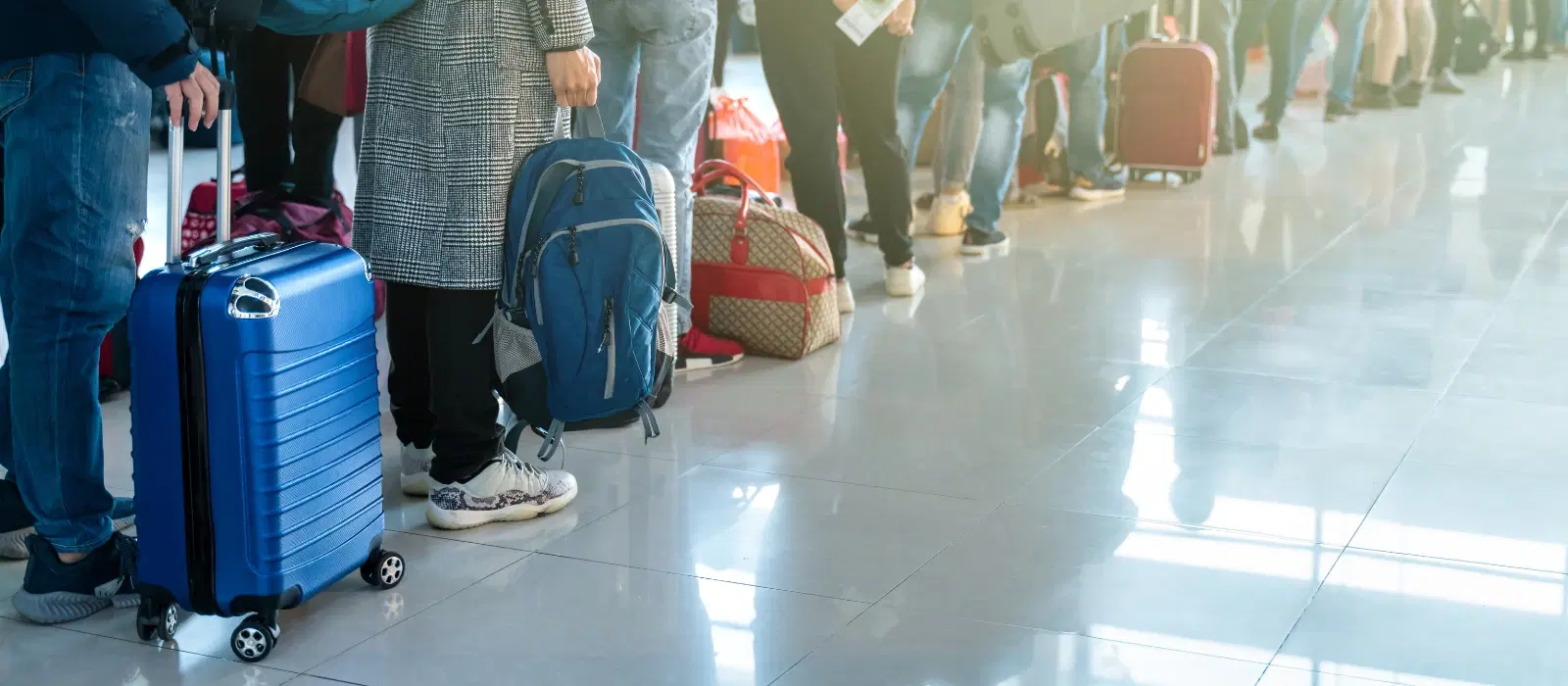
Hotels
•05 min read

Imagine arriving at the airport in a flutter only to realize that you forgot your most essential item. That moment of panic is avoidable when you master the art of packing for foreign travel. This guide is dedicated to transforming the overwhelming task of travel packing into a smooth, systematic process. Here, you will discover expert insights, actionable tips, and a comprehensive strategy to help you pack smartly, avoid common pitfalls, and tailor your luggage to suit every international journey, including common scenarios for travelers from India, such as navigating local airport procedures or addressing cultural expectations.
Smart packing saves you time, money, and unnecessary stress during your travels. When you pack light, you not only move around with greater ease, but you also eliminate the worry of overspending on excess baggage fees. Traveling efficiently allows you to invest more in experiences at your destination. The idea of packing light means choosing versatile items that serve multiple purposes so that your bag is filled with only what is truly necessary.
Understanding your destination is crucial when preparing for an overseas trip. Before you pack, consider the local climate, cultural expectations, and any specific customs. For instance, Indian travelers heading to Europe during winter may need thermal wear and waterproof jackets, while trips to Southeast Asia might call for breathable fabrics and sun protection. Whether you're headed to a bustling city or a serene countryside, knowing the weather and local norms will inform your choices from clothing to specialized travel gear. This approach keeps you comfortable and respectful of local traditions, making your journey more enjoyable and less stressful.
Your travel documents are the foundation of every international trip. Always double-check that you have your passport, visa, travel insurance, and several photocopies of these essential items. Organizing them in a well-designed travel wallet or folder can save you from last-minute panic and ensure that your important documents are always accessible and secure.
A smart wardrobe is key to a stress-free trip. Aim for versatile, mix-and-match outfits that can adapt to different occasions. When packing, consider the local weather and opt for season-specific items. For instance, include light, breathable fabrics for tropical climates or a few layers for cooler evenings. Indian travelers should also keep local customs in mind, such as modest attire for visiting religious sites. This not only enhances your comfort but also ensures you respect cultural norms regarding attire wherever you go.
Your toiletries and personal care items should be travel-friendly. Stick to a checklist of TSA-approved items, including travel-size skincare products and essential medications. Don’t forget first-aid essentials that can help manage minor issues on the go. Whether it's your favorite moisturizer or that reliable pain reliever, having your personal care items prepared means you can focus on the adventure that awaits.

Efficient packing relies on smart techniques such as the rolling method and the use of packing cubes. These strategies maximize your suitcase space and minimize wrinkles, making it easier to locate what you need. Prioritize items based on their necessity and try to leave behind the extras that might seem useful 'just in case' but end up weighing you down.
Your carry-on bag should be a well-thought-out collection of essentials. Include electronics, snacks, and even a change of clothes to ensure you’re covered during delays. Keeping your valuables and key travel documents close at hand in your carry-on not only safeguards them but also makes transit much less stressful.
Modern travel demands a few tech essentials to enhance convenience. Items such as power adapters, portable chargers, and noise-canceling headphones can significantly improve your travel experience. Accessories like compression bags or travel pillows add comfort and help maintain organization, ensuring that you’re always well-equipped wherever your journey takes you.
The needs of a business traveler differ considerably from those of a vacationer. Professionals may require formal attire, laptops, and work-related documents, while leisure travelers might focus more on casual and comfort wear. Understanding these differences enables you to tailor your packing strategy to meet the demands of each trip, ensuring both professionalism and relaxation are balanced perfectly.
Traveling with family involves a bit of extra planning, especially when children are involved. Pack entertainment options, snacks, and comfort items that can keep everyone happy on long journeys. Streamline the process by organizing group belongings into categorized bags. This way, you ensure everyone’s essentials are within reach while reducing the chaos associated with group travel.
When planning for an extended stay, whether for studies or work, packing must cater to everyday living. In addition to the basics, remember to include study materials, local currency, and items that make setting up a temporary home easier. Preparing for a longer duration means anticipating your needs for both comfort and functionality, making it crucial to establish a well-thought-out packing list.
Overpacking can lead to inconvenient baggage fees and a heavy load that slows you down. Stick to your tailored packing list and resist the temptation to bring too many 'just in case' items. Streamlining your belongings not only conserves space but also promotes a more enjoyable travel experience.

In the rush to pack, some critical items may be overlooked. Simple things like travel adapters, chargers, or even a list of emergency contacts deserve your attention. Creating a comprehensive pre-departure checklist can prevent unpleasant surprises and keep you focused on the journey ahead.
Expert Tip: Pack Like a Pro
Did you know that packing cubes can increase your suitcase's capacity by up to 30%? According to a recent travel efficiency study, not only do they save space, but they also keep your belongings organized and easy to access during your trip.
Pack essentials like a travel pillow, noise-canceling headphones, a reusable water bottle, snacks, and entertainment options such as a book or tablet. Don’t forget important documents and a change of clothes in case of delays.
Focus on versatile clothing that can be mixed and matched. Use packing cubes, roll your clothes, and limit yourself to two pairs of shoes. Plan to do laundry during your trip to reduce the number of outfits needed.
Avoid packing bulky items, expensive jewelry, or anything that violates TSA regulations. Leave behind items that can easily be purchased at your destination, such as toiletries or over-the-counter medications.
Use a travel wallet or folder to keep all important documents—passport, visa, travel insurance, and itinerary—in one place. Make photocopies or digital backups in case of loss.
Research your destination’s weather and pack layers for versatility. Include essentials like a lightweight waterproof jacket for rainy climates or thermal wear for cold destinations.
Smart packing for foreign travel involves careful planning and attention to the specifics of your destination. By understanding what to pack and using efficient strategies like packing light and organizing essentials properly, you can avoid common pitfalls and transform your travel experience. Apply these expert insights and tips to your next trip, and enjoy the freedom and ease that comes with being well-prepared for any adventure. Share your own packing tips or experiences in the comments below, and explore more travel insights tailored for Indian travelers on our blog!